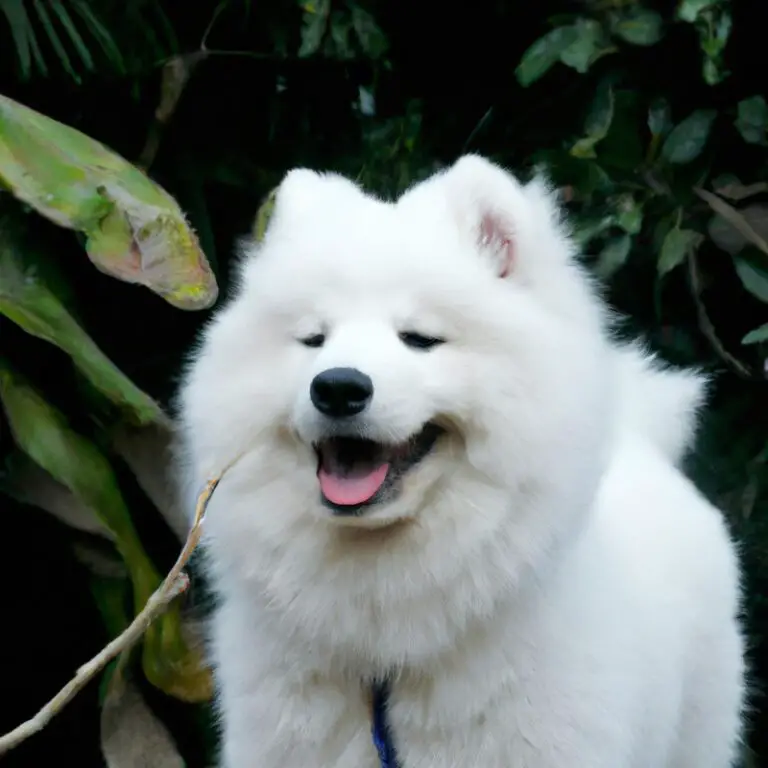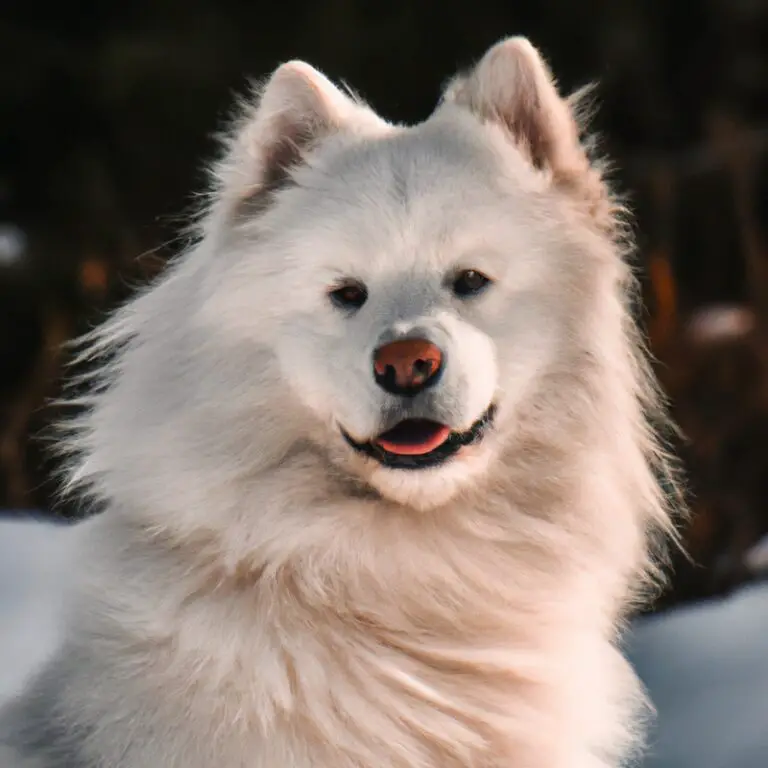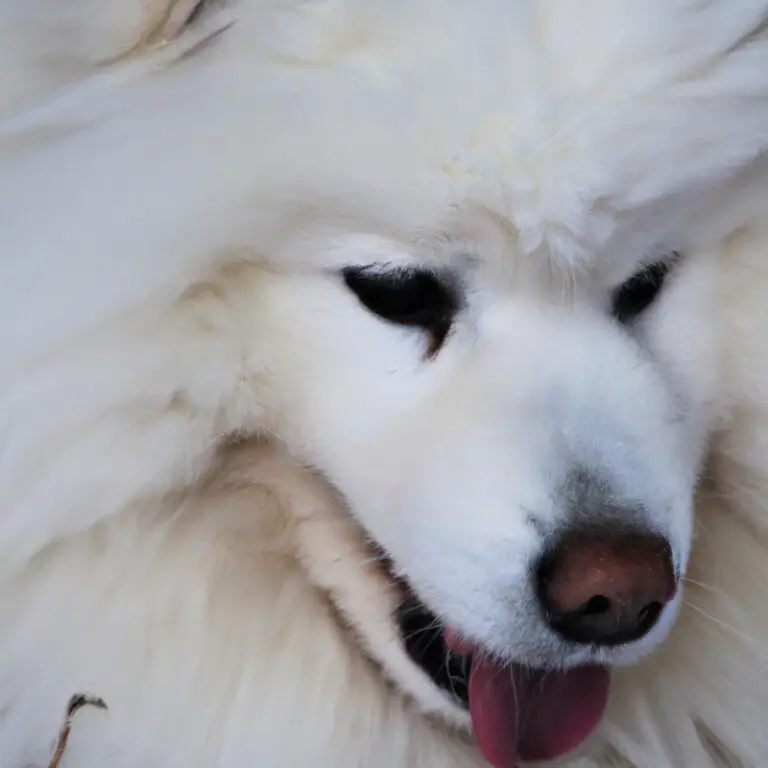How To Handle Samoyed’s Possessiveness Over Food?
Key Takeaways:
- Establish clear feeding routines and boundaries to address possessiveness issues.
- Use positive reinforcement techniques to encourage calm behavior around food.
- Gradually introduce controlled sharing and food puzzles to reduce possessiveness.
- Seek professional help if possessiveness persists or escalates into aggression.
Are you tired of battling with your Samoyed over food? Does your furry friend become possessive and aggressive when it’s time to eat?
Well, fret not! I’m here to help you understand and tackle this common issue.
In this article, we’ll dive into the fascinating world of Samoyed possessiveness over food, exploring its causes and how to identify the signs. But that’s not all—we’ll also equip you with effective strategies to manage your furry companion’s food-related behaviors.
Whether it’s establishing a consistent feeding routine or implementing obedience training, we’ve got you covered.
So, let’s get started on creating a harmonious mealtime experience for you and your Samoyed!
| Problem | Solution |
| Posessiveness over food | 1. Establish a feeding routine and schedule 2. Use positive reinforcement and reward-based training 3. Teach the dog the “leave it” and “drop it” commands 4. Implement food management strategies such as feeding in a separate area or using feeding toys 5. Seek professional help if the problem persists |
Understanding Samoyed’s possessiveness over food
What causes possessiveness over food in Samoyeds?
Samoyeds can develop possessiveness over food due to various reasons, such as natural instincts and past experiences. Their ancestral background as working dogs often leads to a strong prey drive and a desire to protect their resources.
Additionally, if a Samoyed has experienced food scarcity or competition in the past, they may become possessive over their food as a survival mechanism.
It’s important to address this behavior early on through proper training, establishing boundaries, and providing a calm and structured feeding routine to ensure a healthy and balanced relationship with food.
Recognizing signs of possessiveness in Samoyeds
Recognizing signs of possessiveness in Samoyeds can help you address this behavior effectively.
Some common signs include growling or showing aggression when approached while eating, standing over their food or guarding it, and snapping or biting if someone tries to take their food away.
Other signs may include tense body language, stiffening up, and hard staring when someone gets too close to their food.
It’s important to identify these signs so you can address the possessiveness and ensure a safe and harmonious environment for everyone involved.
Strategies to manage possessiveness over food in Samoyeds
Establishing a consistent feeding routine
Establishing and maintaining a consistent feeding routine is essential for managing possessiveness over food in Samoyeds.
Start by feeding your Samoyed at the same times each day.
Use a designated feeding area and avoid feeding from the table or counters.
Gradually introduce any changes to the routine to avoid causing distress.
Stick to a specific feeding method and avoid giving in to begging or demands.
Consistency will help your Samoyed feel secure and reduce possessiveness over food.

Implementing obedience training and commands
Implementing obedience training and commands is key in managing possessiveness over food in Samoyeds. Start by teaching basic commands like “sit” and “stay” to establish control.
Gradually introduce “leave it” command specifically for food.
Use positive reinforcement, such as treats and praise, to encourage desired behaviors. Consistency and repetition are vital for success.
It is important to set clear boundaries and enforce them consistently to establish obedience and respect.
Seek professional guidance if needed.
Utilizing food puzzles and interactive toys
Using food puzzles and interactive toys is a great way to manage possessiveness over food in Samoyeds.
These toys provide mental stimulation and keep your dog engaged, reducing their focus on food.
Additionally, they encourage slow eating and problem solving, which can help alleviate resource guarding behavior.
Make sure to choose puzzles and toys that are suitable for your Samoyed’s size and skill level.
Rotate different toys to keep the excitement level high.
Remember, supervision is essential to ensure safety and prevent any choking hazards.
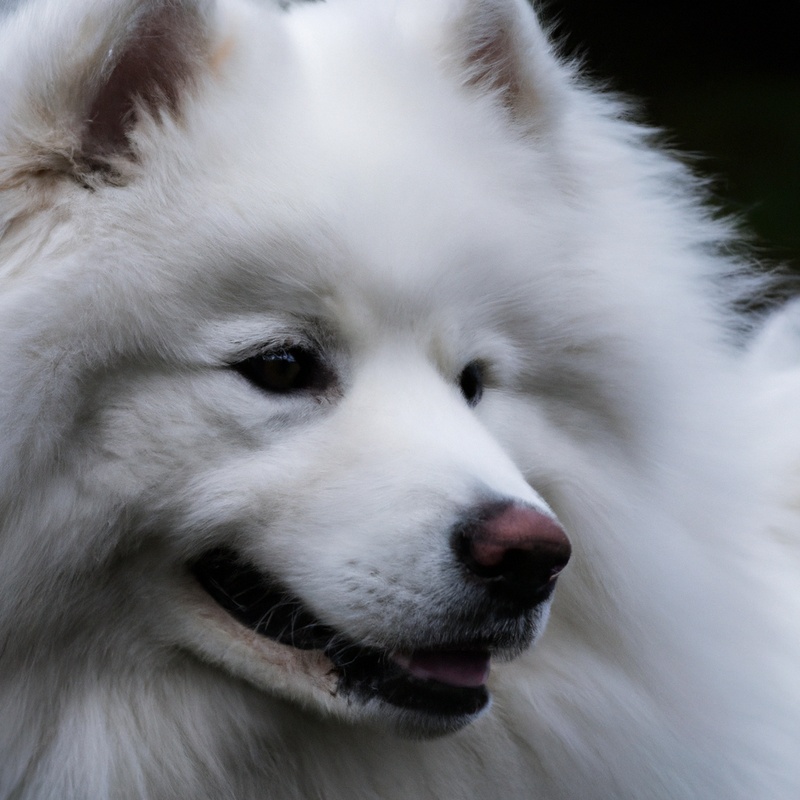
Gradually desensitizing Samoyed to food-related triggers
To gradually desensitize your Samoyed to food-related triggers, start by exposing them to these triggers in a controlled manner.
Begin at a distance that doesn’t elicit any possessive behavior, gradually moving closer over time.
Reward your Samoyed for calm behavior and redirect any signs of possessiveness.
Consistency is key, so repeat this process regularly and increase the difficulty gradually.
Over time, your Samoyed will develop a healthier relationship with food and become less possessive.
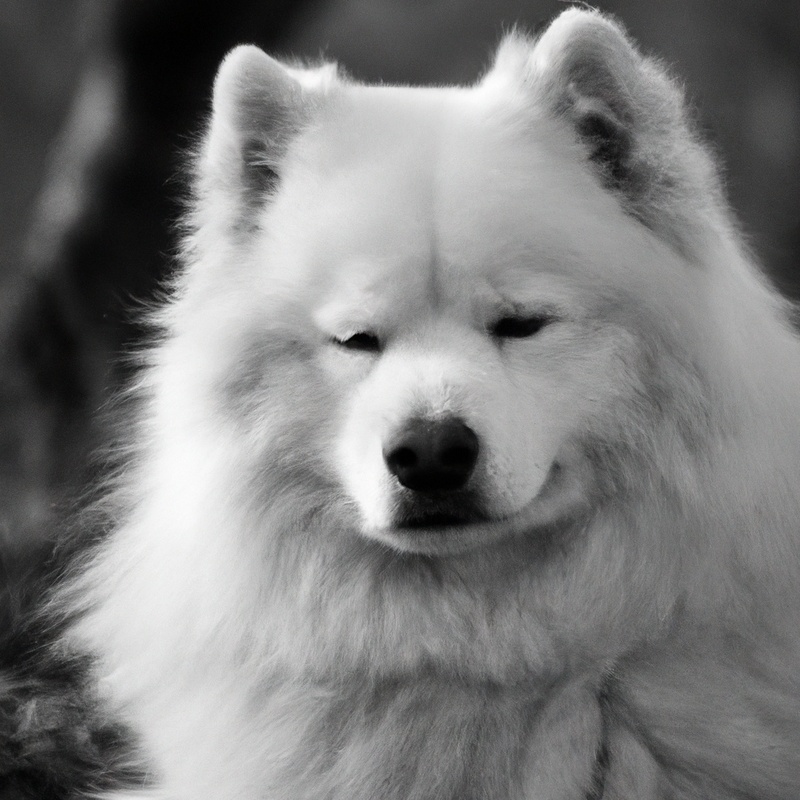
Dealing with resource guarding in Samoyeds
Understanding resource guarding behavior
Resource guarding behavior in dogs, including Samoyeds, is when they exhibit possessiveness or aggression over certain items such as food, toys, or their resting space.
It is important to understand that this behavior is a natural instinct for dogs.
It’s their way of protecting what they consider valuable.
Understanding why your Samoyed displays resource guarding behavior can help you address the issue more effectively.
Some common triggers include fear, insecurity, past experiences, and lack of socialization.
It’s crucial to seek professional guidance to safely manage and modify this behavior.
Steps to prevent resource guarding in Samoyeds
To prevent resource guarding in Samoyeds, establish a positive feeding routine with consistent meal times. Use a calm and assertive approach when handling their food.
Gradually introduce handling and trading exercises to build trust.
Offer high-value treats during meals to create a positive association. Enroll in obedience training classes to reinforce good behavior and establish boundaries.
Avoid confrontations or taking away their food abruptly.
Managing and responding to resource guarding episodes
When dealing with resource guarding episodes in your Samoyed, it’s important to manage and respond to the situation appropriately. Here’s what you can do:
- Recognize the signs: Be aware of the warning signals that indicate resource guarding, such as growling, snapping, or stiff body postures.
- Avoid confrontations: Never punish or scold your Samoyed for resource guarding. This may escalate the situation and make the behavior worse.
- Create a safe environment: Ensure that your dog has a designated feeding area where they can eat undisturbed. This helps reduce the need for resource guarding.
- Use positive reinforcement training: Teach your Samoyed that it’s a good thing when people approach their food or belongings. Gradually introduce people near their resources while rewarding calm behavior.
- Seek professional help if needed: If the resource guarding behavior persists or becomes aggressive, consult a professional dog trainer or behaviorist for personalized guidance and support.
Remember, managing and responding to resource guarding requires patience, consistency, and positive reinforcement training techniques.
Seek professional help if necessary
Identifying situations requiring professional intervention
Identifying situations that require professional intervention is important when dealing with a Samoyed’s possessiveness over food. Here are some red flags to look out for:
- Aggressive behavior: If your Samoyed becomes aggressive or displays any signs of aggression, such as growling, snapping, or biting when approached near their food, it’s crucial to seek professional help.
- Resource guarding escalation: If your Samoyed’s possessiveness over food escalates and they start guarding other resources like toys or sleep spaces, it’s a sign that their behavior is becoming more serious and needs professional intervention.
- Inability to manage the situation: If you find that you’re unable to manage or control your Samoyed’s possessiveness over food despite your best efforts, seeking help from a professional trainer or behaviorist can provide you with the guidance and support you need.
Remember, every situation is unique, and seeking professional assistance can help ensure the safety and well-being of both you and your Samoyed.
Benefits of consulting a professional dog trainer or behaviorist
Consulting a professional dog trainer or behaviorist can offer several benefits when dealing with a Samoyed’s possessiveness over food.
Here are some reasons why it can be beneficial:
- Experience and expertise: A professional trainer or behaviorist has the knowledge and skills to understand and address the underlying causes of possessive behaviors.
- Personalized approach: They can tailor a training plan specifically for your Samoyed’s needs, considering their unique temperament and behavior.
- Effective techniques: Professionals utilize proven techniques and positive reinforcement methods to modify behavior and teach your dog appropriate food manners.
- Long-term solutions: A trainer or behaviorist can help you establish consistent routines and practices, leading to lasting improvements in your Samoyed’s behavior.
- Support and guidance: They provide ongoing support and guidance throughout the training process, helping you navigate challenges and ensuring success.
By consulting a professional, you can gain valuable insights and assistance in addressing your Samoyed’s possessiveness over food and promoting a healthier relationship with food.
How long does it take to overcome possessiveness over food in a Samoyed?
Factors that can impact the timeline for improvement
The timeline for improvement when dealing with possessiveness over food in a Samoyed can vary depending on a few factors. These factors can include the age and temperament of the dog, the severity of the possessiveness, and the consistency and effectiveness of the training methods used.
It’s important to be patient and consistent in your training efforts, as progress may take time.
Seeking guidance from a professional dog trainer or behaviorist can also be helpful in addressing this issue effectively.
The importance of consistency and patience in the training process
Consistency and patience are key in the training process. When working with your Samoyed, it’s important to be consistent with your commands, expectations, and rewards.
This helps them understand what behavior is expected of them.
Patience is also crucial as dogs may take time to learn and adjust. It’s important to remain calm and understanding throughout the process, rewarding their progress rather than punishing mistakes.
Training takes time, so be consistent and patient for the best results.
Can neutering/spaying help reduce possessiveness over food in Samoyeds?
Understanding the potential effects of neutering/spaying on behavior
Neutering/spaying can potentially affect a Samoyed’s behavior. It may reduce possessiveness over food, as well as aggression and dominance tendencies.
However, the impact of neutering/spaying on behavior can vary from dog to dog.
It’s important to consult with a veterinarian or professional dog trainer to understand the potential effects on your individual Samoyed. They can provide guidance on how to address possessiveness over food and recommend appropriate training techniques.
Consulting a veterinarian for advice on the best approach
If you’re dealing with your Samoyed’s possessiveness over food, consulting a veterinarian is your best bet. They have the expertise to assess your dog’s behavior and provide tailored advice for the best approach.
They might recommend behavior modification techniques or suggest changes to their feeding routine.
Remember, a veterinarian can offer valuable guidance to help you address this issue effectively and ensure the well-being of your pet.
Is possessiveness over food a breed-specific issue in Samoyeds?
The prevalence of possessiveness over food among Samoyeds
Possessiveness over food is a common issue among Samoyeds.
Many Samoyeds can display a strong desire to protect their food from other dogs or humans.
This behavior can stem from their natural instincts as working dogs and their history of being responsible for their own food intake.
It is important for Samoyed owners to establish clear rules and boundaries around mealtime to prevent possessiveness from escalating.
Gradual desensitization exercises and positive reinforcement can help address this behavior and ensure a peaceful mealtime for both you and your Samoyed.
Strategies to prevent or address possessiveness in all dog breeds.
To prevent or address possessiveness in all dog breeds, there are several strategies you can try:
- Start early: Begin training your dog from a young age and establish yourself as the pack leader. This will help them understand boundaries and prevent possessive behavior.
- Positive reinforcement: Use rewards and praise to reinforce good behavior around food. Reward your dog for calm and patient behavior while eating or being near food.
- Food-related exercises: Incorporate exercises that promote sharing, such as hand feeding or giving treats to multiple dogs simultaneously. This can help decrease possessiveness and encourage cooperation.
- Gradual exposure: Gradually expose your dog to situations where they may exhibit possessive behavior. Start with low-stakes scenarios and gradually increase the difficulty, rewarding them for appropriate behavior.
- Consistency and routine: Establish consistent feeding times and a routine that your dog can rely on. This can help alleviate anxiety and reduce possessiveness.
Remember, it’s important to consult with a professional dog trainer or behaviorist if possessiveness becomes a persistent issue.
They can provide personalized advice and guidance tailored to your dog’s specific needs.
Final Verdict
Understanding and managing possessiveness over food in Samoyeds is crucial for their overall well-being and harmony in the household. By recognizing the signs and causes of possessiveness, implementing strategies like consistent feeding routines, obedience training, and desensitization, and addressing resource guarding behavior, we can help our Samoyeds develop healthier and more balanced behaviors around food.
However, it is essential to remember that each dog is unique, and professional help may be necessary in certain situations.
With patience, consistency, and the right approach, we can help our Samoyeds overcome possessiveness and foster a positive relationship with food.


